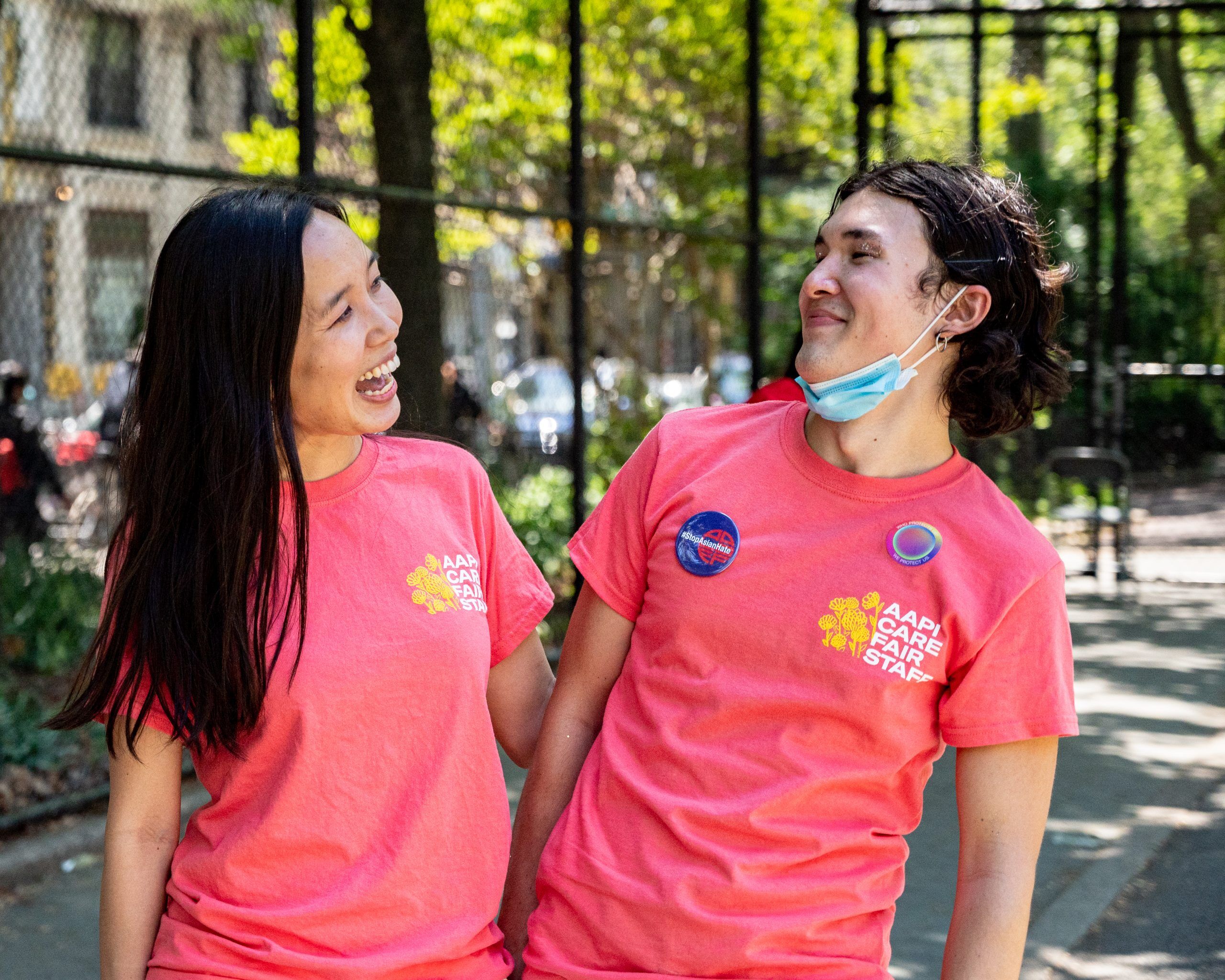A study from this March showed that 1 in 10 Asian-Americans have experienced hate crimes in their lifetimes. That figure, it turned out, was just the tip of the iceberg. The same study showed that 1 in 4 Asian-Americans have experienced a hate incident in 2021, a year that’s seen anti-Asian violence on the rise, thanks in part to Trump’s anti-Asian rhetoric concerning the COVID-19 pandemic. And the violence we hear about doesn’t even represent the whole truth.
President Biden recently signed an anti-Asian hate bill into law to address the problem of increased violence toward AAPI folks across the country. But more action is needed.
This April, Mount Sinai School of Medicine resident Michelle Tran decided to do something about it. She joined forces with New York activist Kenji Jones and a talented 8th-grader named Tiffany Yuen to create Soar Over Hate, a mutual aid project that’s already raised over $80,000 for women, queer folks, and elderly folks in the AAPI community. On May 15th, they organized an AAPI Care Fair in Chinatown’s Columbus Park to bring folks together for live music, mutual aid, and protest.
View this post on Instagram
INTO asked Tran and Jones about their mission to arm New York’s AAPI community against hate and racist attacks.
How did the two of you decide to come together for this project?
Michelle Tran: Kenji and I were both disturbed by the rise in anti-Asian hate crimes. We were tired of feeling helpless watching news clips of elderly Asians and Asian women being violently attacked on the streets of NYC. We both were moved to start grassroots initiatives of our own, raising money from friends and family to purchase self-defense materials (personal safety alarms, pepper spray, whistles, kubotans) for the most vulnerable Asian American Pacific Islander (AAPI) members of the community. Along the way, we became connected over social media and started calling each other to share advice about wholesale purchases and fundraising. During our conversation, we realized we could create more long-term solutions and help for the folks who were mainly low-income, non-English speaking elderly folks in NYC’s Chinatowns who were coming out for the free materials. We decided to join forces to bring the community together for a holistic and uplifting event right in the middle of Asian American Pacific Islander Heritage Month (AAPIHM) to offer free self-defense materials, healthcare screening, COVID-19 vaccines, self-defense classes, live music, puppy therapy, and more for the community.
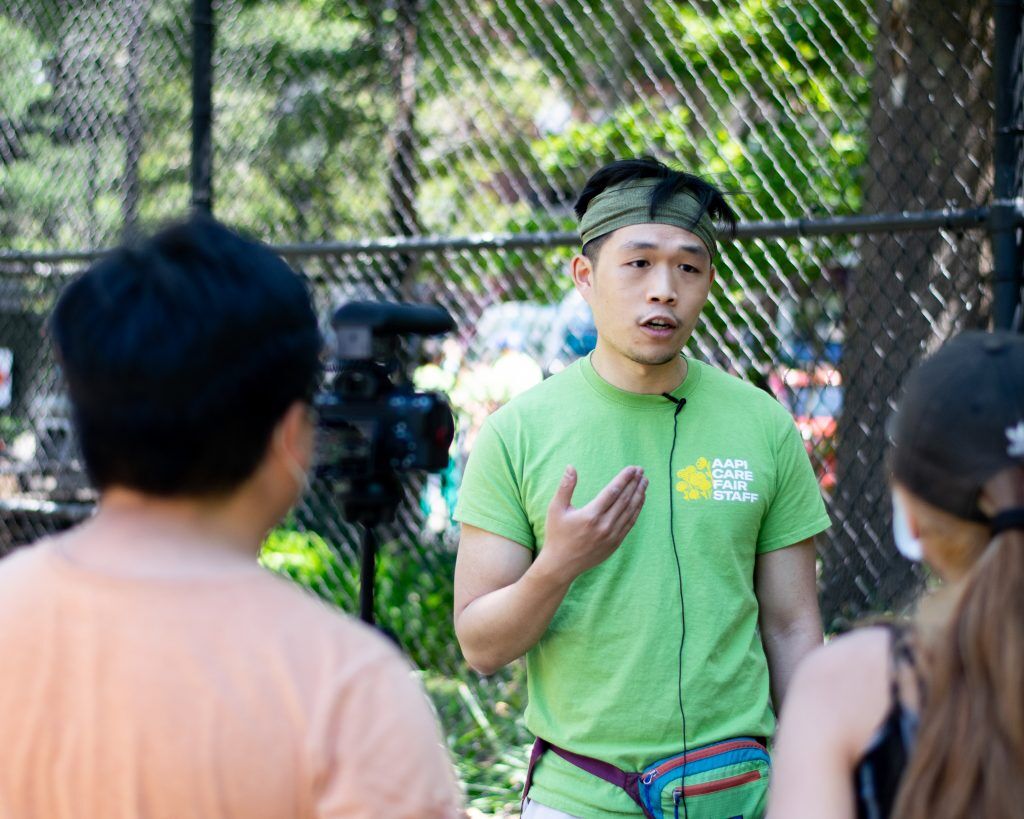
How does activism fit into your full-time work?
Tran: It has honestly been very rough pursuing my MD/PhD studies and keeping up with this outreach project, but the same reasons that motivated me to pursue medicine are the same ones that spurred me to action with Soar Over Hate. Racism is a public health issue. There are long-term mental and physical health consequences of being discriminated against, being called hateful words, or worse, physically assaulted. Feeling safe walking down the street in one’s own skin is a basic human right. Outside of this outreach project, I am also heavily involved with medical racial justice work at Mount Sinai, leading the Asian Pacific American Medical Student Society, sitting on the hospital system-wide anti-Asian bias committee, and co-founding Sinai’s Racial Justice/Anti-Racism Reading Groups.
Racism is a public health issue.
Kenji Jones: I work a 9-5 job in digital marketing. Activism does not easily fit into my full-time work. Like many hustling New Yorkers, I juggle a job that pays the bills, and a passion project that fulfills me. When you feel strongly about a cause or a project, you find yourself more energized and excited to put in work even when you’re teetering on burnout. There’s a Yuri Kochiyama quote that says “people in the movement sustain each other. It’s because their spirit is so contagious.” The energy, love and compassion of volunteers and other organizers has enabled us to continue our activism work and day jobs.
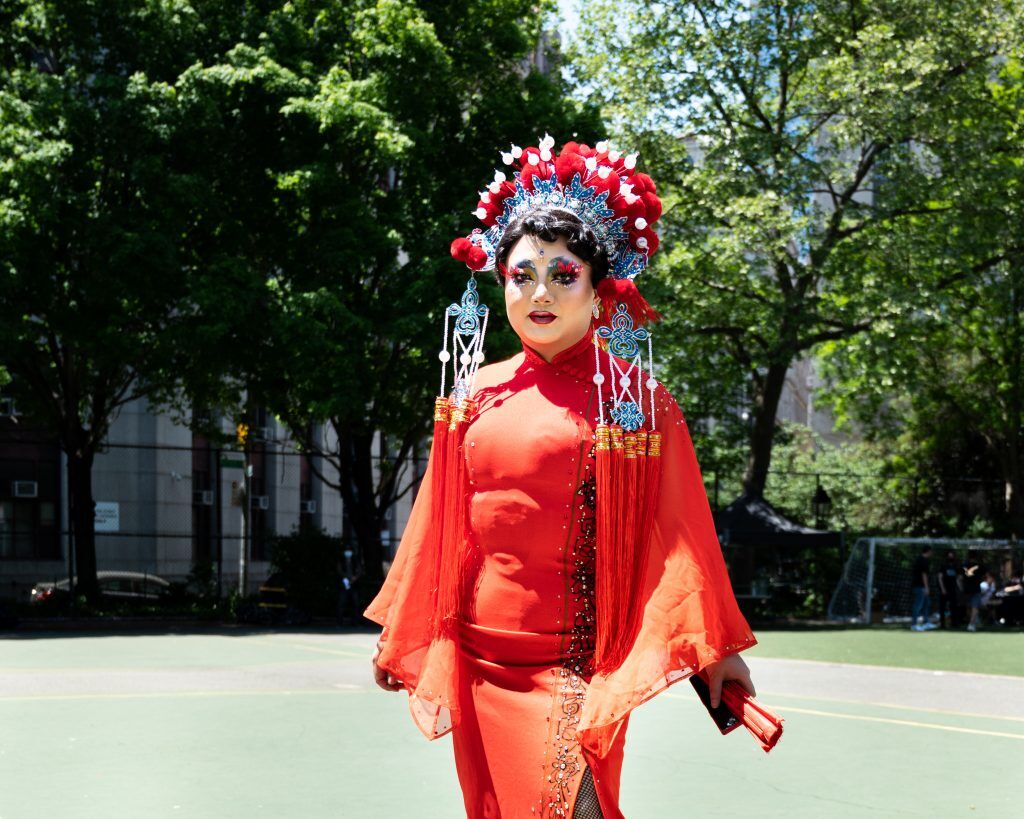
What are your hopes (personal and for the movement) for the next 5 years?
Jones: I hope that we are able to build stronger cross-class and cross-race coalitions. Solidarity and intersectionality are vital to creating more holistic, longer-lasting strides toward racial justice and equality. We can’t be siloed into only concerning ourselves with the justice and wellbeing of our own group. It’s everyone together versus racism. It’s everyone together versus white supremacy. We can hold closely the beauty and uniqueness of our own community and be prideful of our own culture, while still speaking out for other oppressed people. We can move closer to this goal by listening and learning from other people of color, calling out and addressing racism within our community and showing up for other people of color when they need support. ‘Showing up’ can be through voting, protest, sharing information on social media or other actions in solidarity and support.
We can’t be siloed into only concerning ourselves with the justice and wellbeing of our own group. It’s everyone together versus racism.
What’s something you feel people really need to hear right now?
Tran: There are SO many people who care. I’ve met so many absolutely incredible people along this project. Real-life everyday heroes, from all backgrounds, who do whatever they can to help uplift their community members.
Jones: Celebrate what makes you different. It may sound corny and cliche, but so many people need to hear this. Especially AAPI right now. Do not listen to white supremacist calls to assimilate, instead, lean further into your culture and be proud of it.
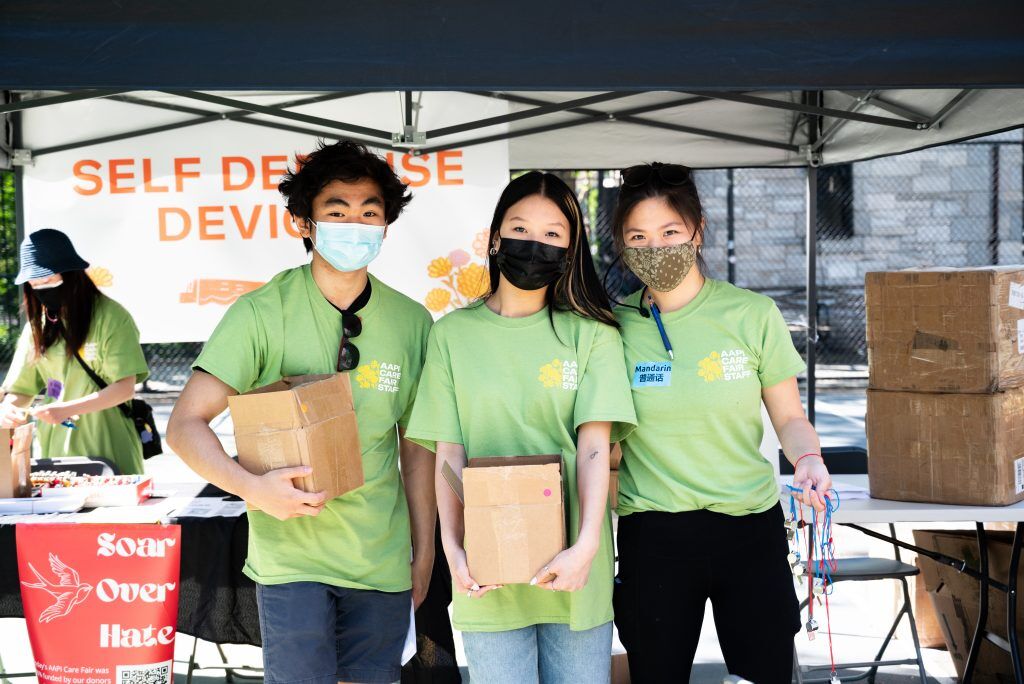
How does queerness fit into your activism?
Jones: When hate crimes against Asian Americans began to increase, our community became fearful of walking alone, we had to be precisely aware of our surroundings, we became fearful for our safety because of our identity. This has so many parallels to how trans and gender non-conforming folks always feel. I hope this common thread can create an understanding and solidarity between these groups.
I have been thinking a lot about the idea of visibility through this project. The elderly AAPI who Michelle and I have been interacting closely with may have little or no LGBTQ+ representation in the media and culture they consume. Being openly non-binary and queer in these spaces, I have only had positive experiences, though. Chinatown aunties and grannies alternate calling me (in Cantonese) “young girl” and “young man.” Which I find amusing and cute. I have had confused folks trying to assign one gender to me, but it has never been with malicious intent.
Just by being ourselves, by being visible, we are making a difference.
We have also included other trans and gender non-conforming volunteers at our events. Just by being ourselves, by being visible, we are making a difference. Especially because we are putting in work for our community. AAPI elders recognize hard work. I hope that by seeing my trans and gender non-conforming siblings and I, folks who may not have been allies previously are now opening their minds and hearts to LGBTQ+ folks.
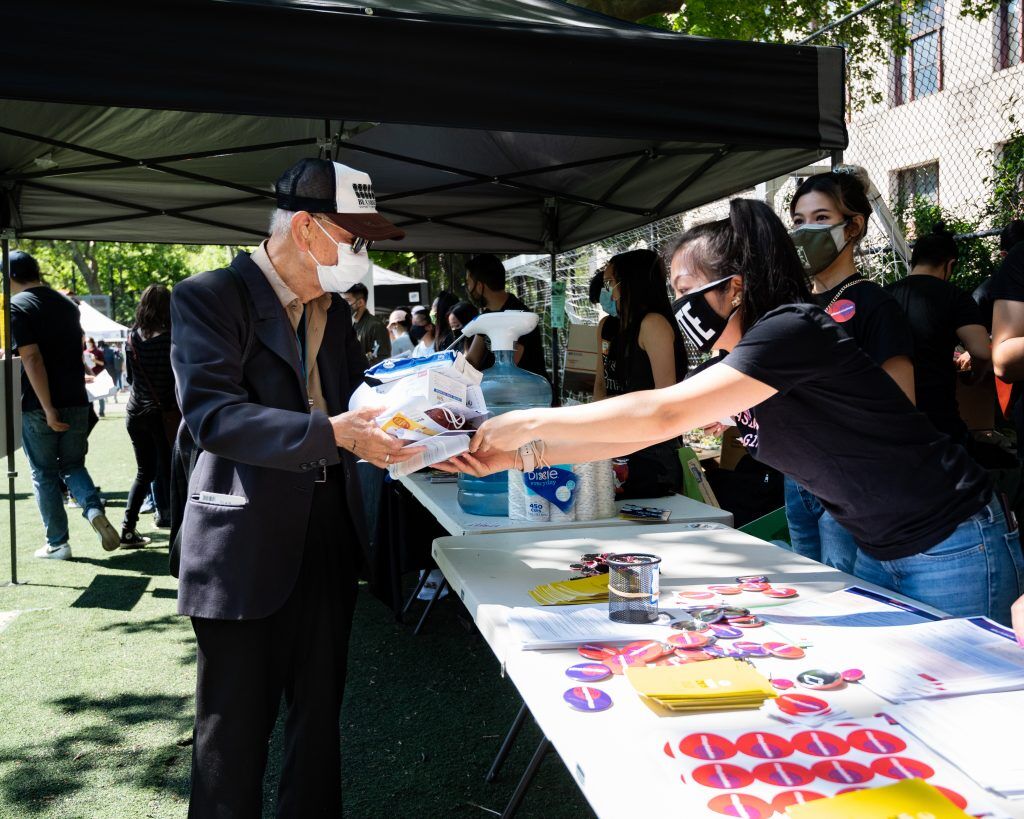
What are some things that are giving you hope right now?
Tran: I almost teared up walking around our AAPI Care Fair. Watching elderly laugh and play with dogs, folks learn impressive self defense moves from our instructors, families lounging on the turf drinking boba and listening to the live music, people lining up in a steady stream to interact with all 11 incredible community organization’s booths – our holistic event was everything we imagined and more. There was an immeasurable amount of love and care in the air that leaves me so hopeful for the future as the city starts to open up more.
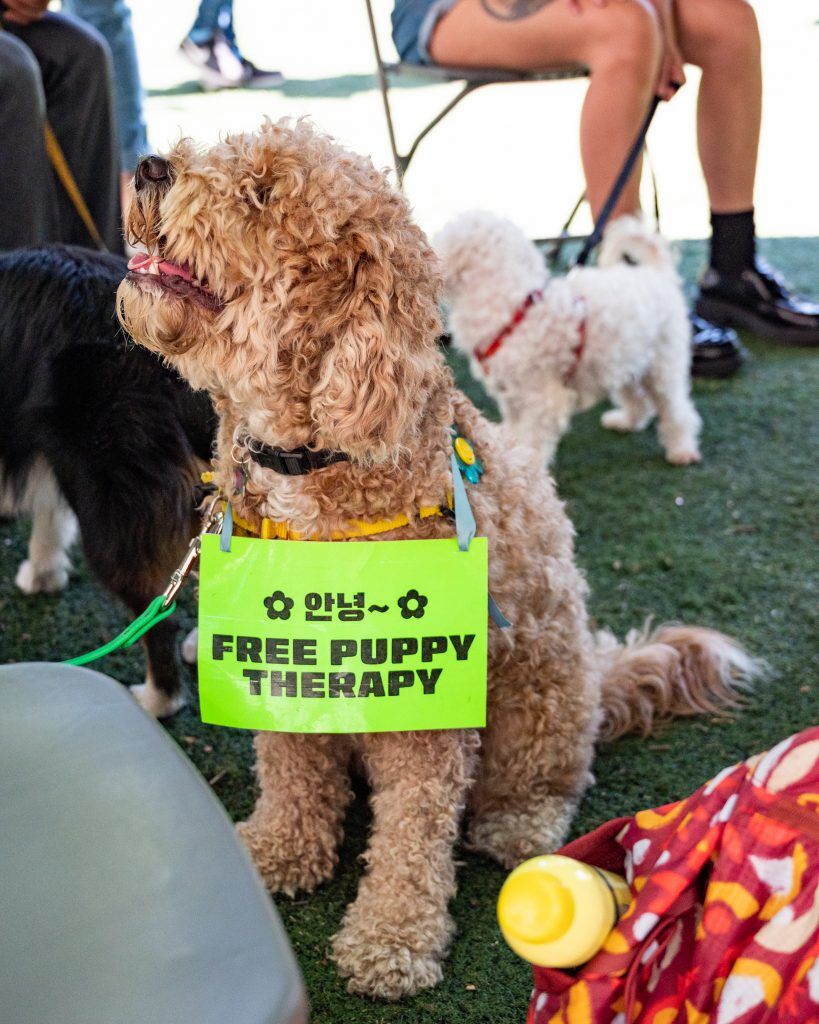
Jones: Something bringing me hope is seeing our community rally behind each other. So many people are stepping up to do their part. I think it’s telling that Michelle and I are not super experienced organizers. We saw the need for our project and we made it happen. AAPI folks all over the country are similarly taking responsibility for the safety and health of their community by initiating projects to protect Asian lives. Chaperoned walks, self-defense device giveaways, self-defense courses and more large-scale projects that ‘regular’ folks have started because they can’t stand to see their community targeted. That is what community looks like. ♦
Don't forget to share:
Help make sure LGBTQ+ stories are being told...
We can't rely on mainstream media to tell our stories. That's why we don't lock our articles behind a paywall. Will you support our mission with a contribution today?
Cancel anytime · Proudly LGBTQ+ owned and operated
Read More in Impact
The Latest on INTO
Subscribe to get a twice-weekly dose of queer news, updates, and insights from the INTO team.
in Your Inbox

